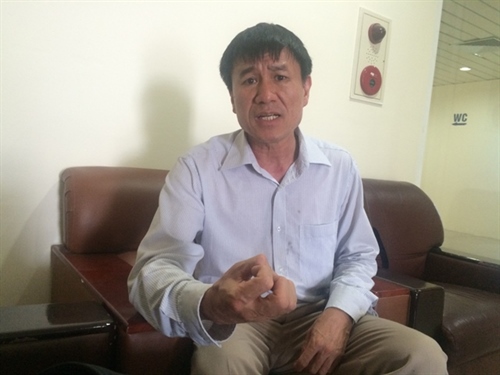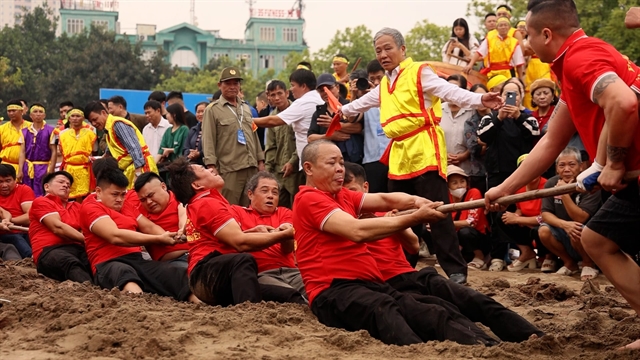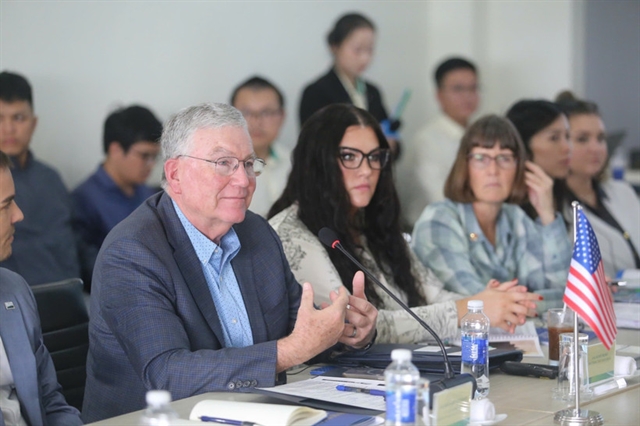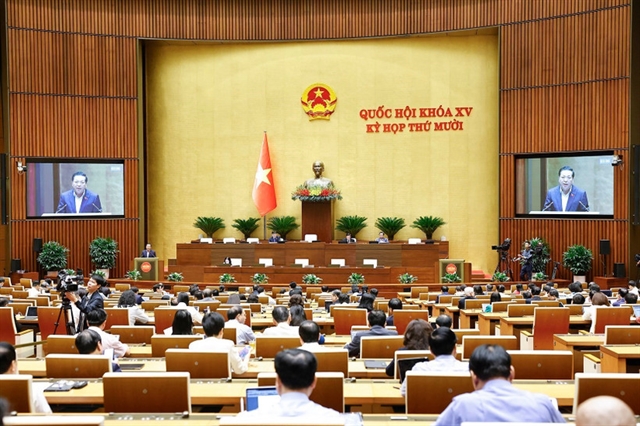 Opinion
Opinion

Lê Đình Quảng, deputy director of the Department of Labour Relations, under the Việt Nam General Confederation of Labour, speaks to Lao động (Labour) newspaper about the retirement age.
 |
| Lê Đình Quảng |
Lê Đình Quảng, deputy director of the Department of Labour Relations, under the Việt Nam General Confederation of Labour, speaks to Lao động (Labour) newspaper about the retirement age.
In your opinion why is the upcoming National Assembly plenary meeting set to discuss increasing the retirement age for working people as part of revisions of the 2012 Labour Code?
Increasing the retirement age for working people was raised during the previous discussion on the revision of the 2012 Labour Code and the revision of the 2014 Law on Social Insurance. However, during those discussions, trade union representatives objected to increasing the retirement age. They came up with various reasons, including working conditions, health and social issues.
The 2012 Labour Code is scheduled to be revised in the NA full house meeting in 2017. So raising the working age of employees will again be discussed by deputies.
In my opinion, it is the right time to discuss the retirement age. As we all know Việt Nam’s socio-economic conditions have changed; so has demand for jobs; health conditions have improved, with life expectancy of Vietnamese people increased considerably. Many people have said that the Vietnamese population has reached the “golden” age. That means the population is aging rapidly.
Under the current law, Vietnamese men retire at the age of 60 and women at 55. This means male and female workers contribute to social insurance for a short time while they enjoy retirement benefits for much longer. The average Vietnamese man contributes to social insurance for about 28 years and a Vietnamese woman for 23 years while men enjoy the benefits for 18 years and women for 24. Looking at these numbers, in the near future the Việt Nam Insurance Fund will be imbalanced. It is time for Việt Nam to increase the retirement age for its workers to balance the time of their contribution to insurance funds and the benefits they receive when they retire.
Another factor I want to emphasise is that Việt Nam has integrated internationally. So, Việt Nam should follow international labour standards, particularly the practice of equality between men and women, I mean the gap in retirement age between male and female employees.
As I have mentioned above, Việt Nam’s socio-economic conditions have improved considerably, so has the health of Vietnamese in general and employees in particular.
Last but not least, I want to talk about the health of public employees working in administrative offices and scientists. Their health is often still sufficient for their jobs when they reach retirement age. Many people have talked about increasing the retirement age for these groups of people.
What’s your opinion on the proposal to increase the retirement age of employees in the up coming revision of the 2012 Labour Code?
Up to now the Việt Nam General Confederation of Labour (VGCL) has not adopted any point of view on the proposal. In previous years, the VGCL has rejected proposals to increase the retirement of Vietnamese workers, particularly for blue collar workers and business men. Of course, this time, the VGCL will consider the proposal to increase the retirement age for working people more carefully. However, for blue collar workers, we should keep the current retirement age.
However, white collar workers and those who work in offices, science and technology we should come up with a road map to increase their retirement age.
How do you respond to concerns that increasing the retirement age may lead to some people refusing to retire while highly educated young people can’t find jobs?
This is an issue we should take into consideration, particularly in administrative jobs.
To solve this problem, I suggest that any new recruitment in the administrative sector, be announced publicly and recruitment procedures be transparent. This is the only way we will have a fair playing field for all applicants for vacant positions. — VNS




